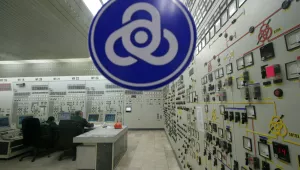Energy Policy Seminar: "The Climate Economics of Oil and Gas Production on Federal Lands"
Join us for an Energy Policy Seminar featuring Brian Prest, Fellow and Director of the Social Cost of Carbon Initiative at Resources for the Future. Prest will give a talk entitled "The Climate Economics of Oil and Gas Production on Federal Lands: From Campaign Promises to the Inflation Reduction Act." Q&A to follow. Buffet-style lunch will be served.
Registration: In-person attendance is limited to current Harvard ID holders. No RSVP is required. Room capacity is limited and seating will be on a first come, first served basis.
Members of the public are welcome to attend virtually via Zoom. Virtual attendees should register using the button below; upon registering, attendees will receive a confirmation email with a Zoom link.
Recording: The seminar will be recorded and available to watch on this page (typically one week later). Those who register for this event will automatically receive a link to the recording as soon as it becomes available.
Accessibility: Persons with disabilities who wish to request accommodations or who have questions about access, please contact Liz Hanlon (ehanlon@hks.harvard.edu) in advance of the session.




